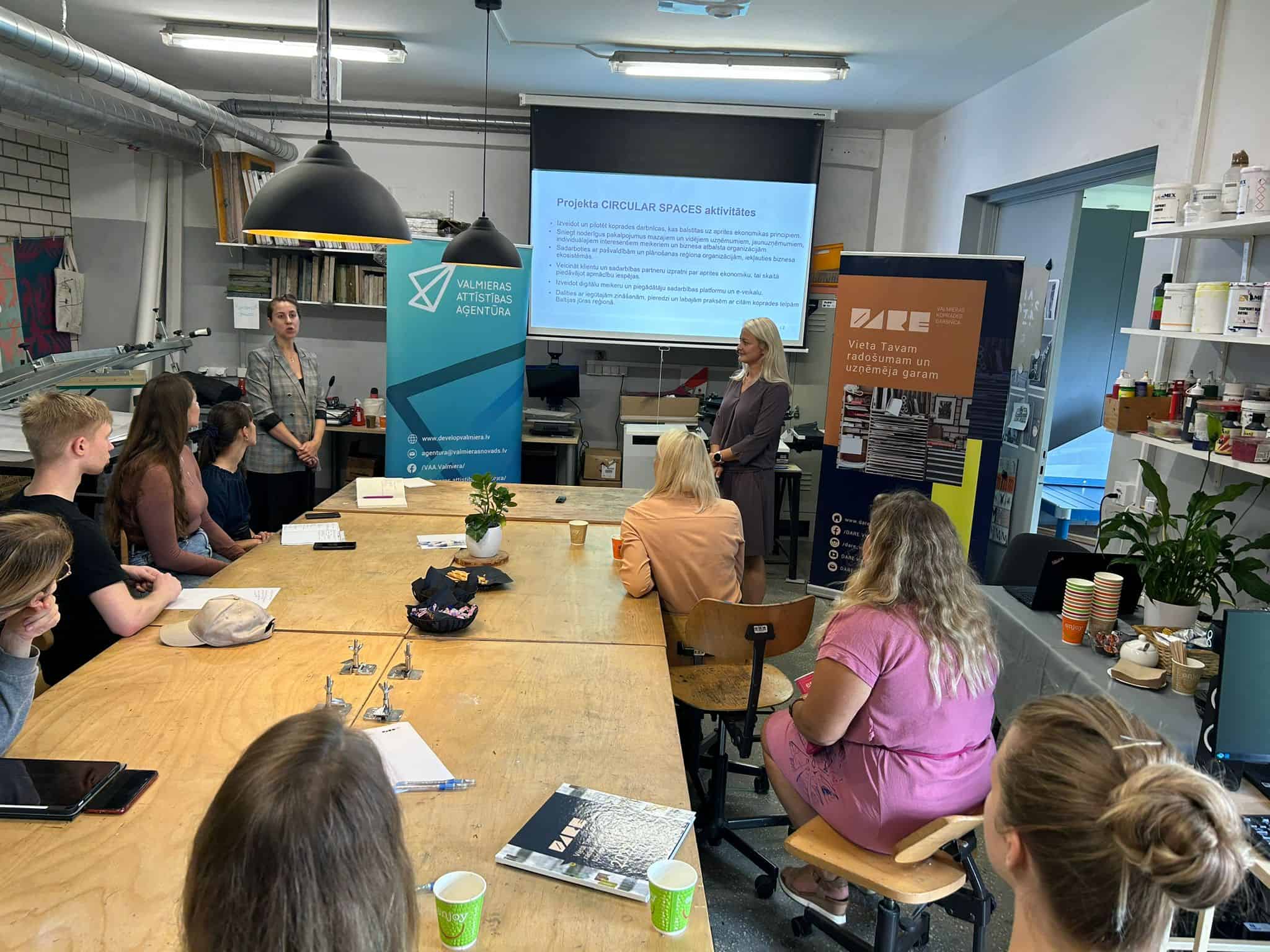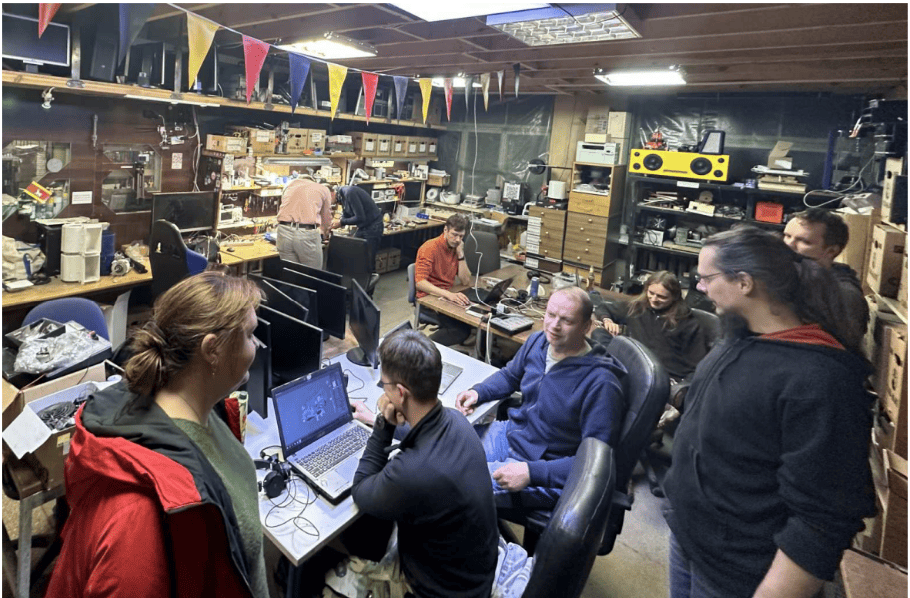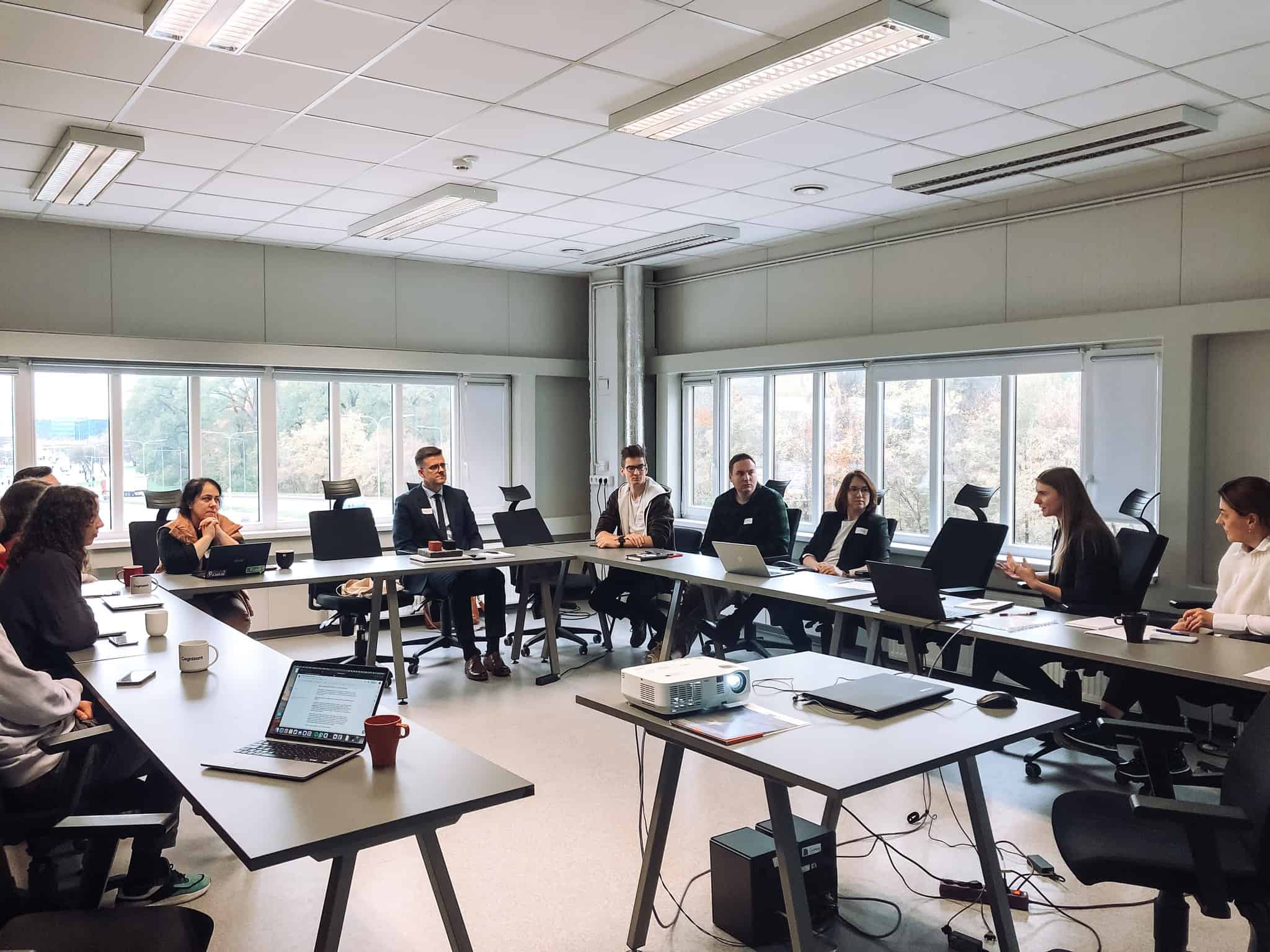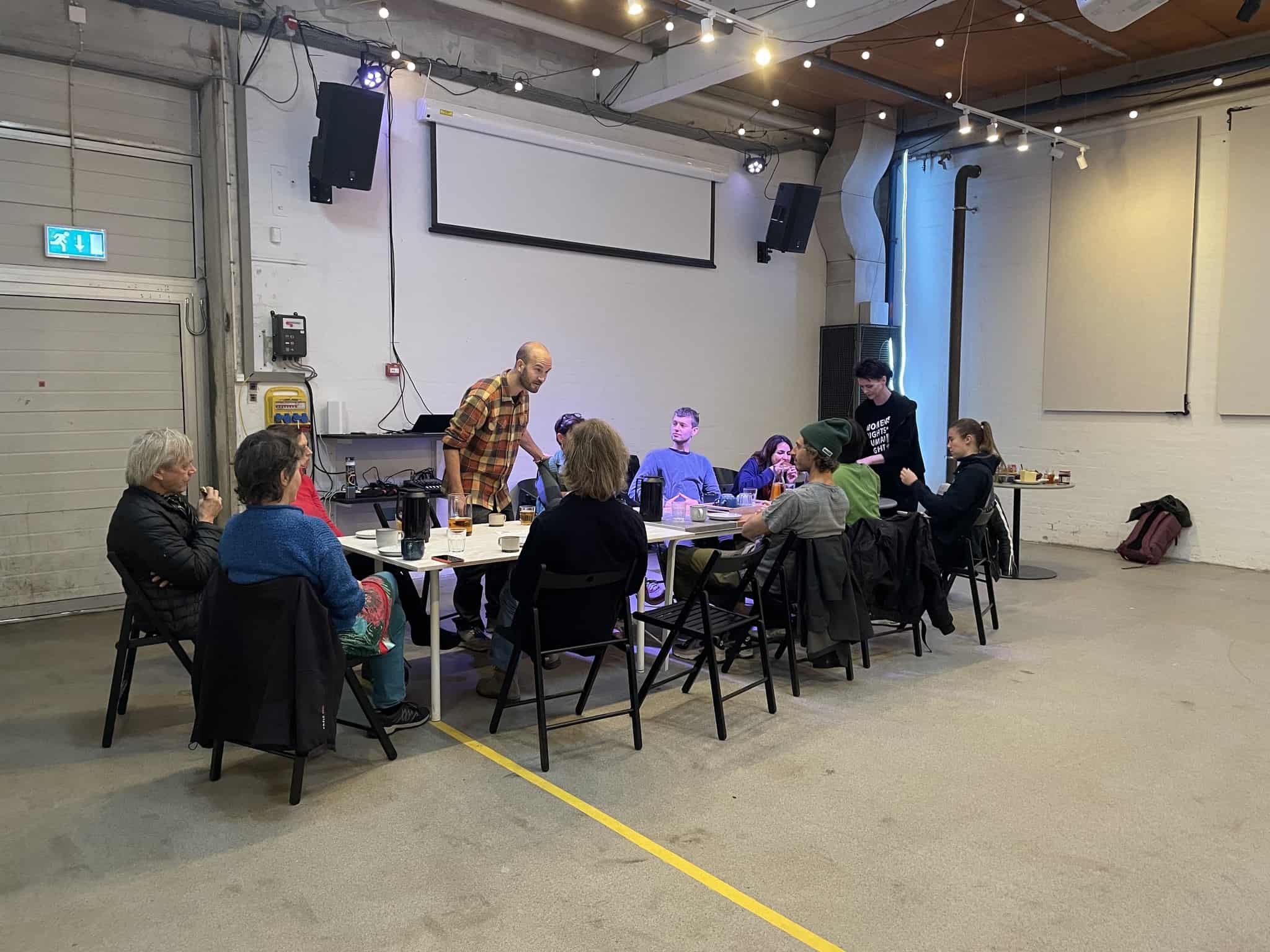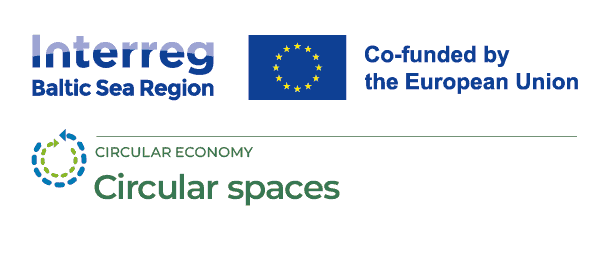
Highlights of autumn 2023 – focus group meetings in makerspaces
27 November 2023
Focus group meeting in Germany
Participants in the focus group value the makerspace premises and acknowledged that the facilities are modern with good equipment. They suggested to organize design competitions. Meeting participants said that they would like to participate in sharing good examples and ideas, cooperation projects with makers and other makerspaces, and training programmes about circular economy in general. To sum up, people seemed to be very unfamiliar with the concept of circularity in makerspaces, but they are willing to learn and build their knowledge in this field.
Focus group meeting in Norway at Creator Makerspace
Focus group participants all use the services offered at the Creator makerspace. They admitted that the makerspace has a lot of machines but no logic and feels messy. Everyone at the meeting suggested to set up a material recovery station, have a person who can help fix a machine or provide workshops e.g. ‘How to fix the 3D printer’, share resources, share the ideas and examples and lastly, have cooperation projects with makers and other makerspaces. Lastly, most of the participants said that they would be interested in having practical knowledge on how to work with specific equipment, how to reuse materials and learn about material alternatives.
Focus group meeting in Circular Makerspace Kaunas, Lithuania
Circular Makerspace Kaunas operates in 3 rooms at Kaunas University of Technology and is well organized and established. This makerspace has a collaboration with some large manufacturing companies that provide leftover materials. Focus group discussed that digital collaboration tool should have e-shop for circular products and services to encourage the adoption of circular economy practices. Also, the tool could include such features as project collaboration platform and educational hub.
Focus group meeting in Makerspace Kaunas, Lithuania
Makerspace Kaunas forms a solid foundation for a makerspace, by operating 3D printers, CNC, laser machines, tools for metal, plastics, woodworking. Manufacturing companies provide leftover materials to the makerspace, some makers use the space with their own materials. Participants suggested that the digital tool could have an international online challenge/competition tool. This feature would encourage makers to come up with creative circular solutions.
Focus group meeting in Makerspace LinkMenų fabrikas, Vilnius, Lithuania
This makerspace mostly focuses on a few areas of activity: electronics, metal and wood processing, 3D printing, thermoplastics, laser cutting, and media production. General agreement within the focus group was to have different types of materials that would support the makerspace in its more sustainable transformation – general guidelines for waste free events and daily work of makerspaces, practical tips, topic specific workshops, and canvas for circular design guidelines. Overall, the use of the digital tool was positively received in the focus group. A database of suppliers that would be able to provide recycled raw materials was mentioned as a potentially major benefit. Also, a platform where contacts of service providers could be found (e.g., for prototype part production) would be beneficial.
Focus group meeting in Makerspace RADE in Ventspils, Latvia
Makerspace in RADE is well appreciated among makers in Ventspils as it provides ergonomic workplace with good equipment. Participants concluded that makerspaces should have training programmes about circular economy, tutorials on the use of open data platforms, material recovery stations and other services. Training should include material options and reusing them, opportunities of open data platforms and how to make your product more sustainable and eco-friendlier. They found that e-shop and supplier network would be most useful function in the digital tool.
Focus group meetings in makerspace DARE in Valmiera, Latvia
Two focus group meetings were held in DARE. In the first meeting participants acknowledged that the space is limited and could be expanded. Everyone agreed that there are a lot of things that you can do in the makerspace already, but there is a lack of smaller things that are needed – various type of glue, etc. Makers shared that DARE could provide circular economy services like furniture restoration workshop, training un eco-design, corner of reusable materials and more ideas. When introduced with digital collaboration tool idea, participants said that they would find contacts and information for more successful reuse of available materials useful, as well as, e-shop. In the second focus group meeting participants admitted that the function of the currently planned digital tool are fulfilled by Facebook and free programs, but they emphasized that the information on local opportunities for companies to cooperate would be very useful.
Summary
To sum up, in all focus groups organisers could hear that cooperation with others is very important to the makers as it can also help to learn and grow professionally. Additionally, most of the participants said that they would use the digital circular collaboration tool. They would also appreciate trainings on circular economy, both face to face and online, based on what the training is about.
